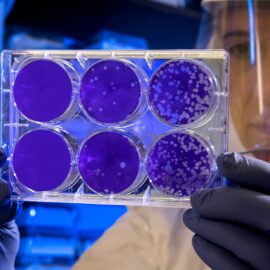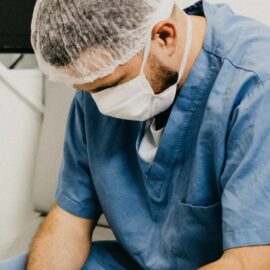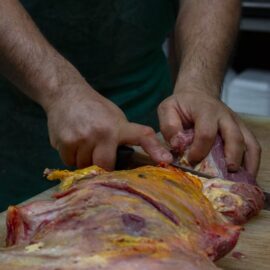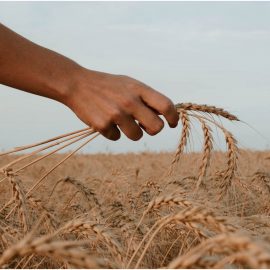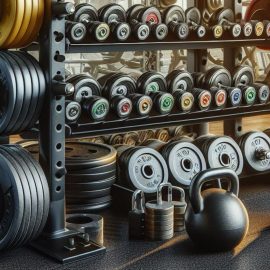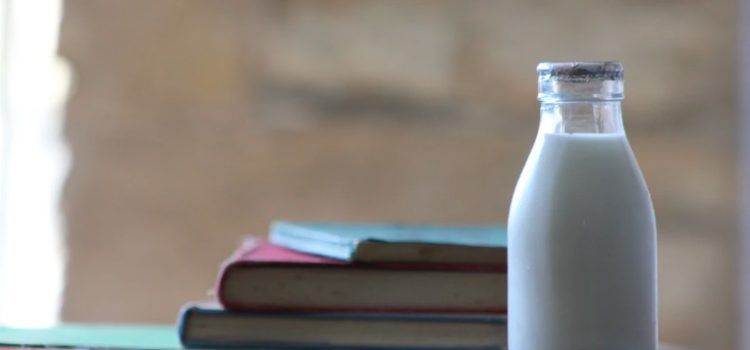
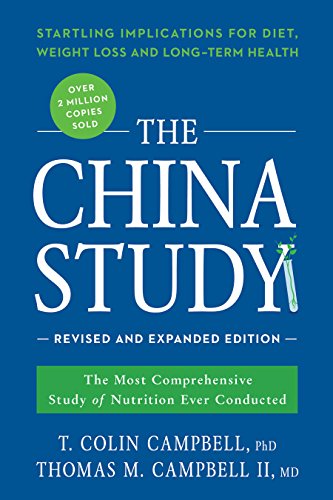
This article is an excerpt from the Shortform summary of "The China Study" by Colin Campbell. Shortform has the world's best summaries of books you should be reading.
Like this article? Sign up for a free trial here .
We’re taught that milk is one of the healthiest things we can be drinking. Some researchers don’t think so. Does milk cause cancer?
We’ll cover the research on the effect of casein, a milk protein, on cancer development in its early stages and look at ways you can lower your cancer risk.
Why We Don’t Hear About Milk Causing Cancer
Cancer is one of the most feared diseases in America. We’re swift in responding to carcinogen discoveries, decrying the use of DDT, Red Dye Number 2, nitrates, and artificial sweeteners.
But we’re not swift in the face of discoveries that are much more impressive and substantial, like the research linking casein with cancer. These findings are so counter to what we’ve always been told that they’re hard to take seriously.
Another discovery that gets ignored is the fact that cancer is, for the most part, preventable. Genetics only determine 2-3% of your cancer risk.
T. Colin Campbell, the author of The China Study, added to the growing body of research that suggested we have control over our cancer risk. He conducted his own studies with rats to determine how protein intake affects cancer development, and what kinds of proteins have this effect. He found that there’s truth in the idea that milk causes cancer, although “cause” is a strong word. More likely, it contributes to cancer’s development through its three stages, as we’ll see below.
In his studies, in which rats were administered the carcinogen aflatoxin (AF), Campbell confirmed and deepened the findings of an earlier Indian study that linked milk and cancer (specifically, casein and cancer). He found that animal-protein consumption increased the risk of various cancers (including liver, pancreatic, and breast) at different stages of the cancer’s development. The results remained consistent when the rats were dosed with other carcinogens, such as hepatitis B, indicating that animal proteins may open the door for multiple types of carcinogens (cancer-causing substances).
The Three Stages of Cancer
We can best answer the question “Does milk cause cancer?” by looking at how the milk protein casein affects cancer development at each stage.
Carcinogens cause cancer by permanently damaging a cell’s DNA, mutating it from a normal cell to a cancer cell. The cancer cell then replicates, and the cancer may spread to other tissues and body systems.
To understand how protein influences this development, we need a basic understanding of the three stages of cancer. We can think of these stages like the process of seeds becoming a lawn.
Stage 1: Initiation
This is the stage analogous to putting the seeds in the soil. In this stage, the carcinogen enters the body and is transported into cells.
Also in this stage, the carcinogen changes into its “active” dangerous form and binds to DNA. Damaged DNA is then passed on to daughter cells. In humans, this stage can be completed within minutes and it can’t be reversed. Once it’s done, it’s done.
Research on Protein in the Initiation Stage
Through various studies, Campbell and his researchers found that low-protein diets (diets that don’t include casein) can do the following at this stage:
- Allow less of the carcinogen into the cell
- Slow the multiplication of cancer cells
- Reduce enzyme activity in the cell (enzyme activity “activates” the carcinogen, making it more dangerous)
This means that lowering your animal-protein intake can greatly decrease your chances of tumor initiation. In other words, a low-protein diet can decrease the number of seeds (activated carcinogens and damaged cells) in the ground (the body). Does milk cause cancer? No. But its protein can allow more of a carcinogen into the cell.
Stage 2: Promotion
In this stage, the seeds are getting ready to become small blades of grass, or cancer cells are getting ready to grow and multiply.
During the promotion stage, a cluster of cancer cells grows into a detectable tumor. In humans, this stage progresses over many years.
Just as seeds won’t grow into blades of grass if their environment doesn’t have enough sunlight, water, and nutrients, cancer cells won’t multiply if the conditions aren’t right. They’ll just stay dormant.
What makes conditions “right”? Milk protein may provide the perfect environment for cancer growth.
Research on Protein in the Promotion Stage
Rats given a high dose of a carcinogen but fed a low-protein diet were less at risk of developing a tumor, compared to those given a low dose of the carcinogen but fed a high-protein diet.
In other words, the presence of casein mattered more than the amount of the carcinogen. We can consume large doses of carcinogens and still not get cancer when we limit our milk-protein intake.
Interestingly, protein (specifically, casein) acted as a switch during this stage. Researchers could increase the amount of protein in an animal’s diet and watch the cancer-cell clusters grow. Two weeks later, they could decrease protein and watch cluster growth slow and even reverse. They could change the direction of growth multiple times, with both animals that started on a high-protein diet and those who started with a low-protein diet.
This implies that even after cancer growth was reversed, the cancer cells never disappeared. They were just dormant. So if you stop eating dairy for years but start eating it again later, you could reactivate cancer cells that have been dormant.
Clusters of cancer cells only developed when rats were fed diets of 12% casein protein or higher. Those who ate more than the required amount of protein they needed to survive and grow were at the greatest risk.
Implications for Humans: Milk Causes Cancer
Generally, the amount of protein we need to survive and grow is 5-6% of our calorie intake. However, the average American eats a diet that’s 15-16% protein, three times more than what’s necessary to thrive.
Based on rat studies, this could be a dangerous amount. Not only does eating a lot of animal protein promote cancer growth, but it also displaces other necessary macro- and micronutrients like carbohydrates, vitamins, and minerals.
In summary, Campbell’s work indicated that we can reverse progress through the promotion stage by limiting “promoters” like milk proteins, which foster the growth of cancer cells, and by increasing “anti-promoters” like vitamins, which slow the growth of cancer cells.
Does All Protein Cause Cancer, Or Just Milk Protein?
Campbell’s rat studies involved casein, a protein from cow’s milk. Other researchers have shown that feeding rats a diet of 20% soy or wheat protein doesn’t have the same effect as casein. These plant proteins don’t create conditions that promote cancer growth.
Researchers were also curious about the role of other nutrients on cancer growth. When they experimented with fish protein, dietary fats, and carotenoids (found in squash, carrots, and oranges), they discovered a theme: Nutrients that came from animals increased tumor development while nutrients that came from plants decreased tumor development.
Overall Results of Campbell’s Rat Study
- All rats administered AF and fed a diet consisting of 20% casein (within the normal range of human consumption) had liver cancer and were dead or almost dead at 100 weeks.
- All rats administered AF and fed a diet consisting of 5% casein were alive and active at 100 weeks.
- Rats switched from a high-protein to a low-protein diet had 35-40% less tumor growth.
Summary of Recommendations
Many cancers prevalent in the West are largely preventable
- Consume less animal protein to keep from “activating” the small amounts of carcinogens we unavoidably consume on a daily basis.
- Consume vitamin-rich plant foods, which act as “anti-promoters,” limiting the multiplication of cancer cells.
- To lower your daughter’s breast cancer risk, consider limiting her fat intake (high-fat diets are associated with early menstruation, which is a risk factor for breast cancer).
- You can reduce your breast cancer risk, even if you have a genetic predisposition, by exercising, avoiding alcohol, eating a WFPB diet, and getting regular screenings.
- To prevent colon cancer, eat 10 extra grams of fiber a day—this is the amount of fiber in a cup of raspberries or peas. A cup of beans has more than 10 grams of fiber.
- Get your fiber from real foods, not from supplements.
- For general disease prevention, get your vitamin D by spending 15-30 minutes in the sun every few days.
- To lower your risk of prostate cancer, eat less dairy.
The evidence that milk causes cancer or, more accurately, has a role in its development, is strong. Limit dairy intake to reduce your risk.
———End of Preview———

Like what you just read? Read the rest of the world's best summary of "The China Study" at Shortform . Learn the book's critical concepts in 20 minutes or less .
Here's what you'll find in our full The China Study summary :
- Why animal proteins (meat, milk) might cause cancer, diabetes, and other diseases
- Why the medical institution is structured to hide the truth about disease and food
- The precise diet you'll need to eat to live longer and feel happier

